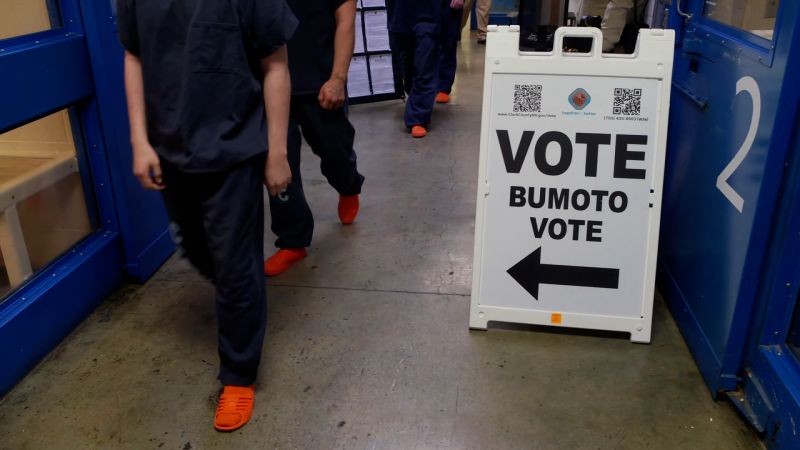In a recent development, both former President Donald Trump and President Joe Biden’s son, Hunter, are facing sentencing for nonviolent felonies before Election Day. While it is unlikely that either will be behind bars on November 5, the issue of how felons and detained individuals can cast their election ballots has become a significant civil rights issue in recent years.
The rules governing voting rights for felons, inmates, and those facing trial vary from state to state. Several new laws and ballot initiatives set to take effect in 2024 will further alter these regulations. For example, in California, where Hunter Biden resides, only individuals serving time in prison are ineligible to vote. In contrast, Delaware, where he was convicted in federal court, imposes more restrictions on felons voting. Florida, where Trump resides, also has stricter regulations on felons voting compared to New York, where Trump was convicted in state court.
Vermont, Maine, and the District of Columbia are the only places in the US where everyone can vote, even if they are convicted felons serving time in prison. In all other states, there are prohibitions on incarcerated felons, with some states imposing additional restrictions.
CNN reporters Sara Murray and Kimberly Berryman recently traveled to Nevada, where a primary election was held. For the first time, individuals who were detained, for various reasons, were allowed to cast their votes despite being incarcerated. The reporters met inmates who were voting for the first time in their lives.
In Nevada, a new law passed this year required jails to facilitate access to voting for non-felons detained within their facilities. This law was put to the test during the recent primary election. “Their vote should not be any less important than the individuals that are out here,” Sadmira Ramic, a voting rights staff attorney for the ACLU of Nevada, told Murray and Berryman. “They face those barriers that we here on the outside don’t even really think about.”
Confusion surrounding voting rights is a major issue for detained individuals. Allegations of illegitimate votes and rigged elections often lead inmates to believe their vote doesn’t matter, resulting in many not voting at all.
Efforts by the ACLU and other voting rights groups in Nevada have ensured that detained individuals who have the right to vote can exercise that right. Ahead of the primary election, the ACLU even threatened a lawsuit to ensure access to polling booths.
In a crucial presidential election where a small number of votes could sway the outcome in key states like Nevada, every vote counts. Additionally, Nevada is home to a closely contested Senate race that may determine which party controls the Senate next year.
Jagada Chambers, a former inmate and rights restoration coordinator for Silver State Voices, expressed hope that politicians would recognize the potential impact of seeking the votes of detained individuals. “In Clark County, you have potential victories lying in those cells,” Chambers noted.











